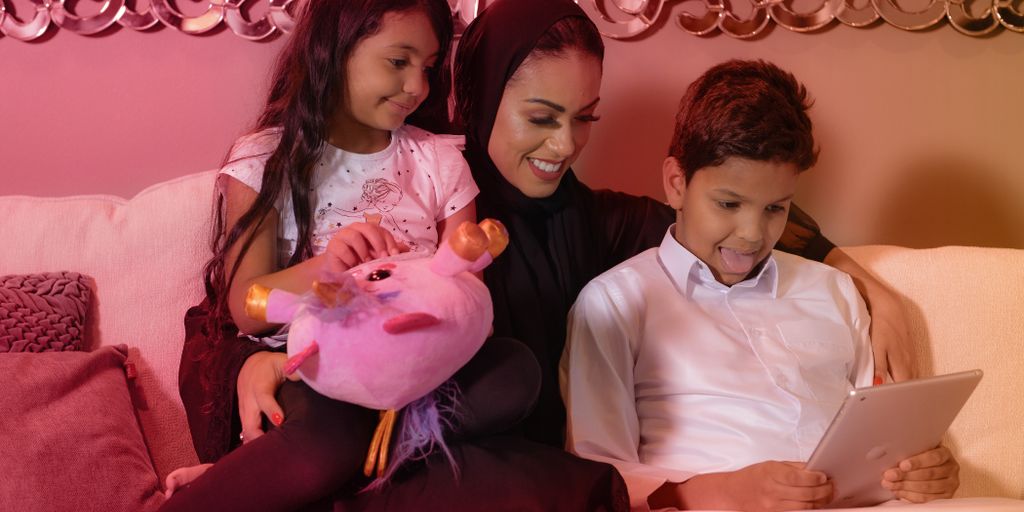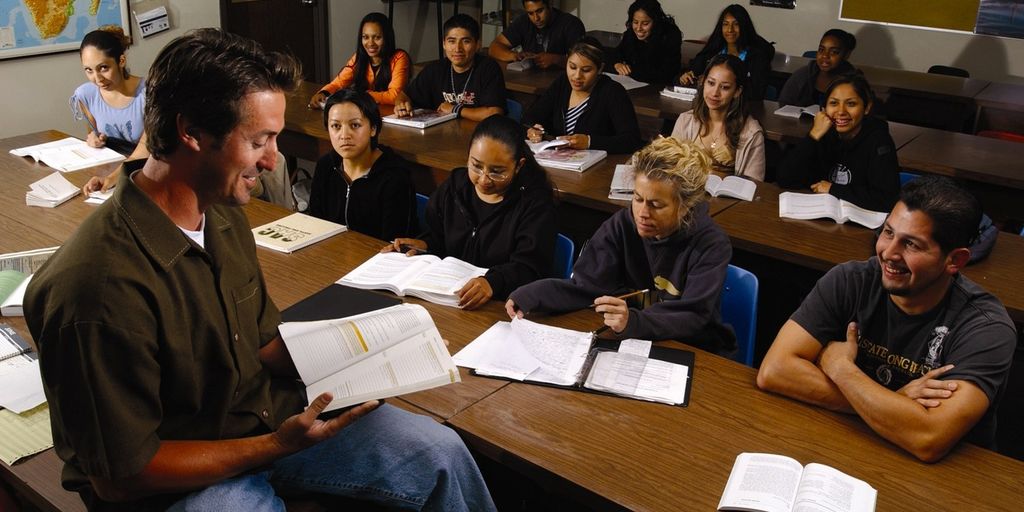
Parental guidance is critical to education because it shapes children’s learning outcomes in the areas of cognition, socialization, emotional development, and lifetime learning. Parents provide the framework for both personal growth and academic achievement through their nurturing presence. Parents who actively participate in their children’s education enable them to realize their full potential, overcome obstacles with fortitude, and develop into lifelong learners who make valuable contributions to society.
Key Takeaways
- Parental guidance enhances cognitive development by fostering problem-solving skills, curiosity, and academic achievement.
- Emotional development is significantly influenced by parental guidance, helping children build resilience, empathy, and stress management skills.
- Through parental guidance, children learn social norms, communication skills, and the foundations for healthy relationships.
- Moral and ethical development in children is shaped by parental guidance, instilling values such as responsibility, honesty, and integrity.
- Effective parental involvement in education creates a supportive learning environment and fosters collaboration with teachers and schools.
The Role of Parental Guidance in Cognitive Development
Parental guidance is critical to education because it shapes children’s learning outcomes in the areas of cognition, socialization, emotional development, and lifetime learning. Parents provide the framework for both personal growth and academic achievement through their nurturing presence. Parents who actively participate in their children’s education enable them to realize their full potential, overcome obstacles with fortitude, and develop into lifelong learners who make valuable contributions to society.
Parental Guidance and Emotional Development
Building Emotional Resilience
Parental guidance plays a crucial role in building emotional resilience in children. By providing consistent support and understanding, parents help children navigate their emotions effectively. This guidance teaches them how to manage stress, cope with challenges, and bounce back from setbacks. Kids need guidance critically to understand what to do or not to do, how to handle frustrations, and how to manage emotions.
Encouraging Empathy and Compassion
Parents are instrumental in fostering empathy and compassion in their children. Through modeling empathetic behavior and encouraging compassionate actions, parents can instill these values in their children. This not only helps in developing strong interpersonal relationships but also in understanding and respecting the feelings of others. Parental influence is a primary factor that shapes a child’s social and emotional development.
Managing Stress and Anxiety
Effective parental guidance includes teaching children how to manage stress and anxiety. Parents can provide tools and strategies to help children deal with these emotions in a healthy way. This might include mindfulness practices, open communication, and creating a supportive environment. By addressing these issues early on, parents can help their children develop a strong foundation for emotional well-being.
The developmental area referred to as emotional development and behavior is naturally, directly related to the guidance we’re talking about here.
Socialization Through Parental Guidance
Teaching Social Norms and Values
Parental guidance is important because here a parent takes responsibility to shape and model socially acceptable behavior in kids and demonstrate socially and culturally appropriate and respectful interaction with other people for the kids. Parents who actively participate in their children’s education enable them to realize their full potential, overcome obstacles with fortitude, and develop into lifelong learners who make valuable contributions to society.
Developing Communication Skills
Modeling social skills: children naturally imitate their parents. Parental displays of empathy, cooperation, and conflict resolution provide valuable lessons. This can be achieved by using parental influence on children to model appropriate social behavior, encourage positive interactions, and provide opportunities for practicing these skills in real-life situations.
Promoting Healthy Relationships
Parents play a crucial role in teaching their children how to build and maintain healthy relationships. By guiding their children through the complexities of social interactions, parents help them develop the skills needed to form strong, positive connections with others. This includes teaching respect, understanding boundaries, and fostering a sense of empathy and compassion.
Parental Guidance in Moral and Ethical Development
Instilling a Sense of Responsibility
Parental guidance is so vital because it starts children on the path to developing their own sense of morality and responsibility. As you guide and direct your children, remember this principle offered by parenting specialist Dorothy James: "Children learn by doing, not by having parents do for them. Guiding conveys walking along beside them, showing them the way."
Encouraging Honesty and Integrity
Children often learn early morality by picking up on their environment and watching their parents or guardians. Verbal communication is still important, though. Parents should consistently model honest behavior and reinforce the value of integrity in everyday situations.
Understanding Right from Wrong
Understanding childhood moral development involves helping children distinguish between right and wrong. This can be achieved through open discussions, setting clear expectations, and providing consistent feedback. As a parent, you’ve set the stage for success, you’ve made your expectations clear, you understand childhood moral development, but your child is still acting out. This is a normal part of the learning process and requires patience and persistence.
Effective parental guidance involves observing, recognizing, and assessing your child’s individual characteristics, then cultivating their strengths.
The Impact of Parental Involvement in Education
Creating a Supportive Learning Environment
Parental involvement in education has a long-lasting impact on children’s education and on the positive development of the school itself. When parents actively participate, they create a nurturing and supportive environment that encourages children to thrive academically. A parent’s positive attitude towards the child’s education will inspire and empower the child to develop good learning habits.
Monitoring Academic Progress
The involvement of the parents in the student’s education increases the success rate of the student. By regularly monitoring their child’s academic progress, parents can identify areas where their child may need additional support and intervene early. This proactive approach helps in addressing any issues before they become significant problems.
Collaborating with Teachers and Schools
Effective parental involvement includes maintaining open lines of communication with teachers and school staff. This collaboration ensures that parents are aware of their child’s academic performance and any behavioral issues. It also allows for a unified approach to addressing any challenges the child may face, fostering a more cohesive educational experience.
Parental involvement in a child’s academic journey, such as showing interest in their school activities and maintaining communication with teachers, plays a crucial role in reducing absenteeism, improving behavior, and enhancing overall academic performance.
Strategies for Effective Parental Guidance
Setting Clear Boundaries and Expectations
Parents can provide effective child guidance if they put enough effort into understanding a child’s behavior, point out and praise good behavior while responding to misbehavior in a nonviolent manner, and being consistent and predictable in doing it. Strong parental guidance doesn’t mean you’re too strict or too firm (authoritarian). It means you’re authoritative which means your leadership is democratic, as I mentioned previously.
Using Positive Reinforcement
Guiding children without being coercive or controlling is extremely important and can be very challenging. How can parents do this successfully?
- Praise good behavior consistently.
- Use rewards to reinforce positive actions.
- Avoid punitive measures that can harm a child’s self-esteem.
Being a Role Model
As a parent, you give your children a good start in life—you nurture, protect, and guide them. Parenting is a process that prepares your child for independence. It’s a balanced approach where you show interest in your kids’ lives, give them autonomy, and provide them with guidance.
Effective parental guidance involves demonstrating and modeling prosocial behavior, balanced emotional regulation and expression, and socially acceptable and respectful interpersonal interaction.
Challenges in Providing Parental Guidance

Balancing Authority and Freedom
One of the most significant challenges parents face is finding the right balance between authority and freedom. Strong parental guidance doesn’t mean being overly strict or authoritarian. Instead, it involves being authoritative, which means adopting a democratic leadership style. This balance is crucial for fostering independence while still providing necessary boundaries.
Dealing with Behavioral Issues
Guiding children without being coercive or controlling is extremely important and can be very challenging. Parents need to understand their child’s behavior, point out and praise good behavior, and respond to misbehavior in a nonviolent manner. Consistency and predictability are key in this process.
Adapting to Individual Child Needs
Every child is unique, and what works for one may not work for another. Parents must adapt their guidance strategies to meet the individual needs of each child. This requires a deep understanding of each child’s personality, strengths, and weaknesses.
As a parent, it becomes your responsibility to navigate your child’s problems and guide them on how to make the right decisions in life.
Conclusion
In conclusion, the importance of parental guidance in child development cannot be overstated. It is a critical factor that shapes children’s learning outcomes in various domains including cognition, socialization, emotional development, and lifelong learning. Parents who actively engage in their children’s education provide a nurturing framework that fosters personal growth and academic achievement. By observing, recognizing, and cultivating their child’s unique strengths, parents set the stage for their children to realize their full potential, overcome obstacles, and develop into well-rounded individuals. Effective parental guidance not only helps children develop a sense of morality and responsibility but also equips them with the skills needed to navigate life’s challenges. Ultimately, the role of parents in guiding their children is indispensable in building a foundation for a successful and fulfilling life.
Frequently Asked Questions
Why is parental guidance important in child development?
Parental guidance is critical to education because it shapes children’s learning outcomes in the areas of cognition, socialization, emotional development, and lifetime learning. Parents provide the framework for both personal growth and academic achievement through their nurturing presence.
How does parental guidance influence cognitive development?
Parents who actively participate in their children’s education enable them to realize their full potential, overcome obstacles with fortitude, and develop into lifelong learners who make valuable contributions to society.
What role does parental guidance play in emotional development?
Parental guidance is vital in building emotional resilience, encouraging empathy and compassion, and managing stress and anxiety in children.
How can parents provide effective guidance?
Parents can provide effective child guidance by understanding their child’s behavior, praising good behavior, responding to misbehavior in a nonviolent manner, and being consistent and predictable.
What strategies can parents use for effective guidance?
Effective strategies include setting clear boundaries and expectations, using positive reinforcement, and being a role model for their children.
What are the challenges in providing parental guidance?
Challenges include balancing authority and freedom, dealing with behavioral issues, and adapting to the individual needs of each child.






